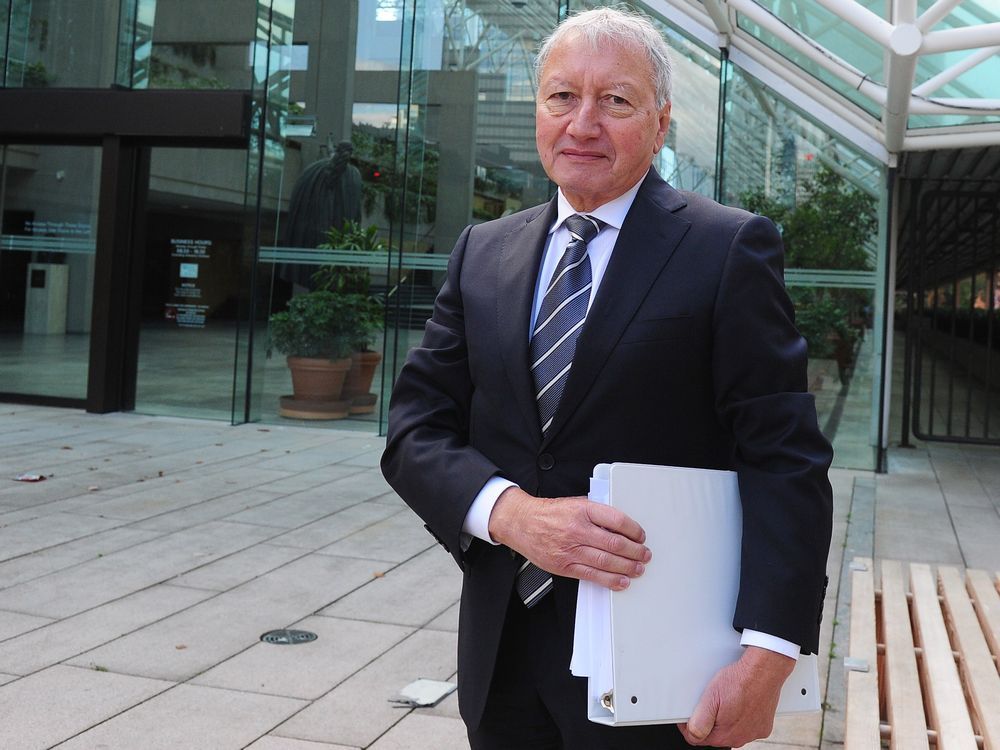Ian Mulgrew: Governments downplay public health care failings

Credit to Author: Ian Mulgrew| Date: Sat, 30 Nov 2019 00:30:18 +0000
Listening to federal and provincial government lawyers, you’d think people would be grateful for the chance to suffer in surgical and diagnostic queues under the guise of receiving “health care.”
The senior levels of government say three years of evidence showing the public system is not working for thousands of patients should be ignored for legal reasons and dismissed to support the aspirational goals of the Canada Health Act.
“In my submission … if the plaintiffs succeed in their claim, what will result is an unequal two-tier health care system in which those with the means to pay or to purchase duplicate insurance, predominantly wealthy young urban elites, will have better access to care than those who are forced to rely on the public system,” B.C. government lawyer Jonathan Penner maintained.
By “better access to care” he means actual access to care, not access to a waiting list.
Penner insisted the challenge to provisions of the B.C. Medicare Protection Act that constrain access to private care will only permit the rich to jump lineups and benefit greedy physicians.
“It is not an exaggeration to say that this case is about the future of Medicare in Canada,” federal lawyer B.J. Wray echoed.
Ah, yes, those “wealthy young urban elites” — not old Joe who doesn’t want to wait a year in pain on addictive medication to have his worn-out knee replaced more quickly and can afford to pay or have insurance to cover the cost.
Let’s not forget that the rich can pop over to the U.S. any time for treatment on demand.
It’s the rest of us who face pernicious delays for surgery or diagnostic services that last well beyond the point our ailments are expected to significantly deteriorate.
Ample evidence in this marathon trial indicated the health of ordinary people needing diagnostic services or surgery worsened and their quality of life diminished while surgeons sit idle, operating rooms go unused, and diagnostic facilities are overloaded because government won’t or can’t pay the cost of providing timely care.
The situation will only get much worse, the plaintiffs say, if the impugned provisions are not struck down so at least the status quo can be maintained.
Instead of addressing that, the governments say it’s irrelevant.
Provincial government lawyer Jacqueline Hughes argued the plaintiffs didn’t have proper standing to bring the case they have and didn’t present it properly either.
Say what? Three years of proceedings and B.C. says, “Whoa, this was all a waste of time”?
“Well, couldn’t you have … shouldn’t you have made those same submissions you’re making now at the beginning of the trial?” Steeves quite sensibly asked.
“No, my Lord,” Hughes replied. “This arises because of the way the plaintiffs are attempting to convert what was a claim pleaded and discovery was conducted in the context of the patient plaintiffs. The breaches that are pled for the patient-plaintiff rights. Over the course of trial, we have morphed from a claim anchored in a breach of their rights into something far beyond that where they’ve put essentially every type of surgical service on trial and led evidence about things like bariatric surgery, cataract surgery, strabismus. Conditions that are nowhere on the pleadings.”
“You didn’t object to that evidence when it went in either,” Steeves said.
“We did, my Lord,” she responded. “We objected to the witnesses being called. We said that.”
Hughes said it would not be appropriate to allow “the plaintiffs to convert this civil claim pleaded within the context of the patient-plaintiff circumstances into a form of reference or Royal Commission by allowing them to have public interest standing to purportedly advance this claim on behalf of all British Columbians.”
Only the evidence of the patient plaintiffs mattered, forget the data of systemic dysfunction.
“They picked the horse. Those are the ones they pleaded, those are the ones they have to prove their claim on,” Hughes said.
“And where you say the claim is problematic is because it seeks to represent all British Columbians?” Steeves asked.
“No, it’s the extent to which the plaintiffs seek to prove their claim based on assertions of harm to anyone other than the patient plaintiffs. Harm to all British Columbians or harm to the patient witnesses.”
Steeves said he kind of understood but didn’t necessarily agree.
“This essentially amounted to trial by ambush with respect to many of the plaintiffs’ witnesses,” Hughes maintained.
“The plaintiffs’ failure to properly plead the material facts necessary to support the arguments they now advance impaired the defendant’s ability to prepare for trial and make full answer and defence.”
Steeves made a note.
“This is constitutional litigation and not a broadly mandated commission into whether the medical needs of the population of British Columbia are being met,” Hughes said.
She emphasized: “The law is clear there’s no positive right to health care.”
For all the hand-wringing, however, even the federal government acknowledged a similar challenge in Quebec over private health insurance didn’t result in significant change.
The two governments used their regulatory powers to minimize the procedures private insurance could cover (hip and knee replacement and cataract surgery), who may provide the surgeries and where they may be provided.
That could happen here.
“Doesn’t that assist the plaintiffs when they say that to allow their claim wouldn’t make big changes?” Steeves queried.
“My Lord, to allow their claim would make dramatic changes because their claim is broader than the claim in Chaoulli,” Wray responded.
Final summations continue.